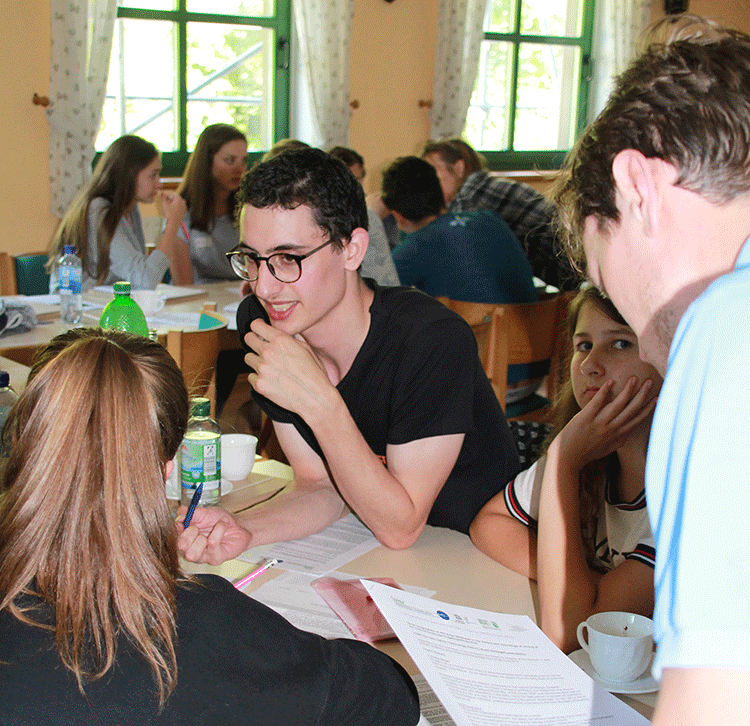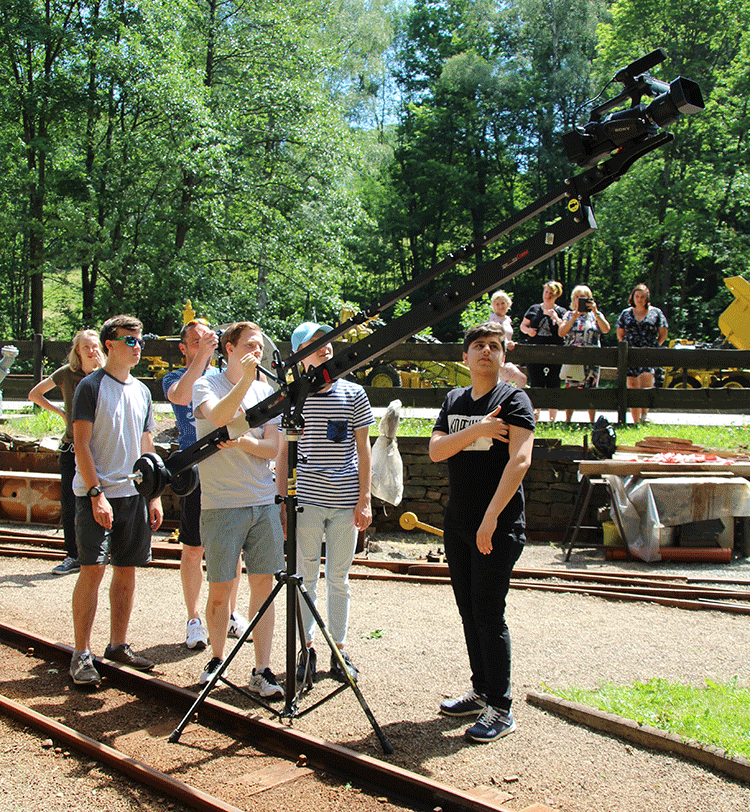
The project "Transboundary European Heritage - a Topic for UNESCO Associated Schools" aimed to recognize the potential of Transboundary World Heritage Sites by advancing and promoting a sustainable international understanding in line with UNESCO's mandate for peace. This was achieved through the collaboration with teachers and students in the development of curricula for the project within the framework of the UNESCO Associated Schools Network, and the implementation of modern learning formats for students. The project had two main objectives: a) to raise awareness among European student bodies of the importance and potential of their shared cultural heritage sites and thereby, to transfer the ASP-net goals on Democracy Education, and on Intercultural and Global Learning; and b) to mobilize European students to immerse themselves into the educational message of World Heritage as expression of the Human Rights Declaration and Sustainable Development.
Within the framework of the workshops, the international teachers and students explored the values of the World Heritage sites, their meaning for a human-rights-based sustainable future, and reflected on their common history as a chance for global and intercultural understanding. In addition, they learned to expand beyond traditional learning methods by implementing strategies with new media technology. The students also identified important content and prepared them in learning videos, which are now available on the project’s learning platform.
The project started in January 2019 with 5 international and intercultural workshops:
Record Results
Report
Programme
Authors: Dr. Larissa Eikermann / Friederike Hansell
Authors: Dr. Larissa Eikermann / Friederike Hansell
Authors: Dr. Larissa Eikermann / Friederike Hansell
Programme
Authors: Viviane Bierhenke / Lars Junghanns
Authors: Viviane Bierhenke / Lars Junghanns
Authors: Viviane Bierhenke / Lars Junghanns
Programme
Author: Dr. Jörg Heinke
Marie - Theres Albert
Petr Cap
Malgorzata Herbich (Document available in English and in Polish)
Karl Sebastian Grobba
Marie - Theres Albert
Klaus Hüfner
Frederike Hansell
Claudia Grünberg (At the request of the participants in German Language)
Matthias Maluck
Claudia Grünberg
Based on the joint teacher-student experiences and the challenges identified during the workshops, the project partnership has jointly defined the need for the development of precise and target-oriented Teaching Manuals about the two binational (German-Czech/Czech-German, German-Polish/Polish-German) sites and the national German UNESCO World Heritage Site, The Archaeological Border Complex of Hedeby and the Danevirke with direct links to Denmark. The development of these materials have been initiated in a conference in Berlin on the 19th and 20th of December
